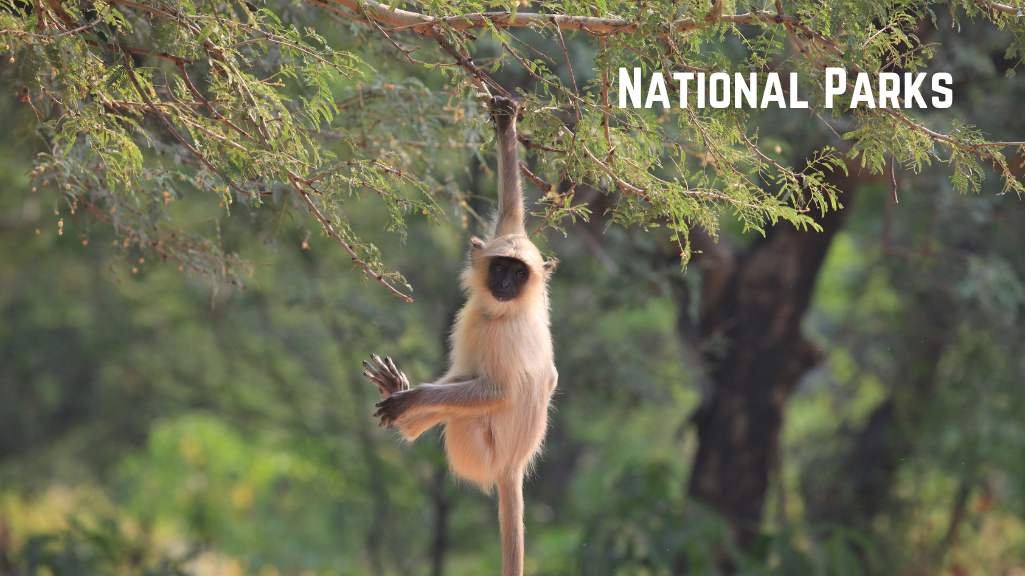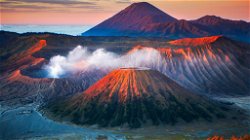Importance of National Parks in Protecting Biodiversity and Wildlife Conservation
Steffan Addison
. 2 min read
The term "national park" refers to an area that has been designated as "national park" by a national government in order to protect the natural environment. It is possible to establish a national park for the purpose of providing public recreation and enjoyment, as well as due to the area's historical or scientific interest. The majority of the terrains and ecosystems, along with the plants and animals that inhabit them, are preserved in their natural state within a national park. National parks in the United States and Canada, with input from developers, tend to prioritize the conservation of both natural habitats and wild animals.

Importance of Our Nation's National Parks
1. The wildlife, habitats, and natural areas within national parks are guarded against destruction and the effects of human activity by the National Park Service. They provide animals with a secure environment in which they can reproduce and live.
2. The primary objective of protected areas is the maintenance of their natural biodiversity. It is essential for the health and stability of ecosystems to have a high level of biodiversity because this ensures that they can continue to provide essential ecosystem services.
3. The economy of the country as a whole as well as the economies of individual communities are affected by the nation's national parks. It is estimated that the return on investment for one dollar spent on national parks is ten times that amount.
Preservation of Healthy Ecosystems
The provision of clean water and air, and the facilitation of the conservation of natural resources are all made possible by the presence of parks, which are an essential component in the process of ensuring the integrity of our environment. Park and recreation professionals should take the initiative to become leaders in the preservation of open space for the benefit of society as a whole. These professionals should also take the initiative to actively lead in the sustainable management and development of land and resources for public use and environmental conservation for the benefit of both the public and the resources.
The Conservation of Wild Animals
We share this planet with a wide variety of plant and animal species, the sum total of which is referred to as the biodiversity of the Earth. Protecting the natural environments in which they live helps to ensure their continued existence over a greater span of time. The nation's national parks offer them a sense of existential safety. In addition, there are a great number of plant and animal species that are extremely unique and cannot survive at all if they are removed from the environments in which they evolved naturally in the wild.
Do you know what activities are and are not permitted in the National Parks?
In the country's National Parks, any kind of human activity is strictly prohibited. Additionally, there is a ban on grazing livestock and the exercise of private tenurial rights on the land. The Wildlife Act prohibits hunting or capturing any of the species that are listed in its schedule. This includes the species mentioned in the Wildlife Act.Within the boundaries of a National Park, it is against the law for any person to cause harm to or destroy the habitat of any wild animal, or to deprive any wild animal of its habitat.
Conclusion
National parks play a crucial role in preserving the natural environment and protecting the biodiversity of the Earth. They provide a safe haven for wildlife and help to ensure the continued existence of unique plant and animal species. Additionally, national parks have a positive impact on the economy and society as a whole. It is important that we recognize the importance of these protected areas and take steps to ensure their preservation for future generations. By respecting the regulations and guidelines set forth by the National Park Service, we can all play a role in protecting and conserving our nation's natural treasures.
More Stories from
Revolutionizing Agriculture: Innovations and Trends Shaping the Future
Discover the cutting-edge technologies and sustainable practices revolutionizing the agricultural industry.
Acid Rain: Causes, Effects, and Solutions
This article provides a concise overview of acid rain, covering its causes, effects, and potential solutions.
Unveiling India's Volcanic Secrets: A Geological Overview
Explore India's unique volcanic history and the enduring forces of nature that continue to captivate scientists and adventurers alike.
Zero-Waste Living: Practical Tips for Reducing Environmental Impact
Discover the power of zero-waste living as this article offers practical tips and actionable advice for reducing your environmental impact.
Eco-Friendly Practices: How Individuals and Businesses Can Make a Difference
Discover the Power of Eco-Friendly Practices: Learn how individuals and businesses can contribute to a greener world by adopting sustainable measures.










.png?width=40&aspect_ratio=1:1)


.png?width=40&aspect_ratio=1:1)